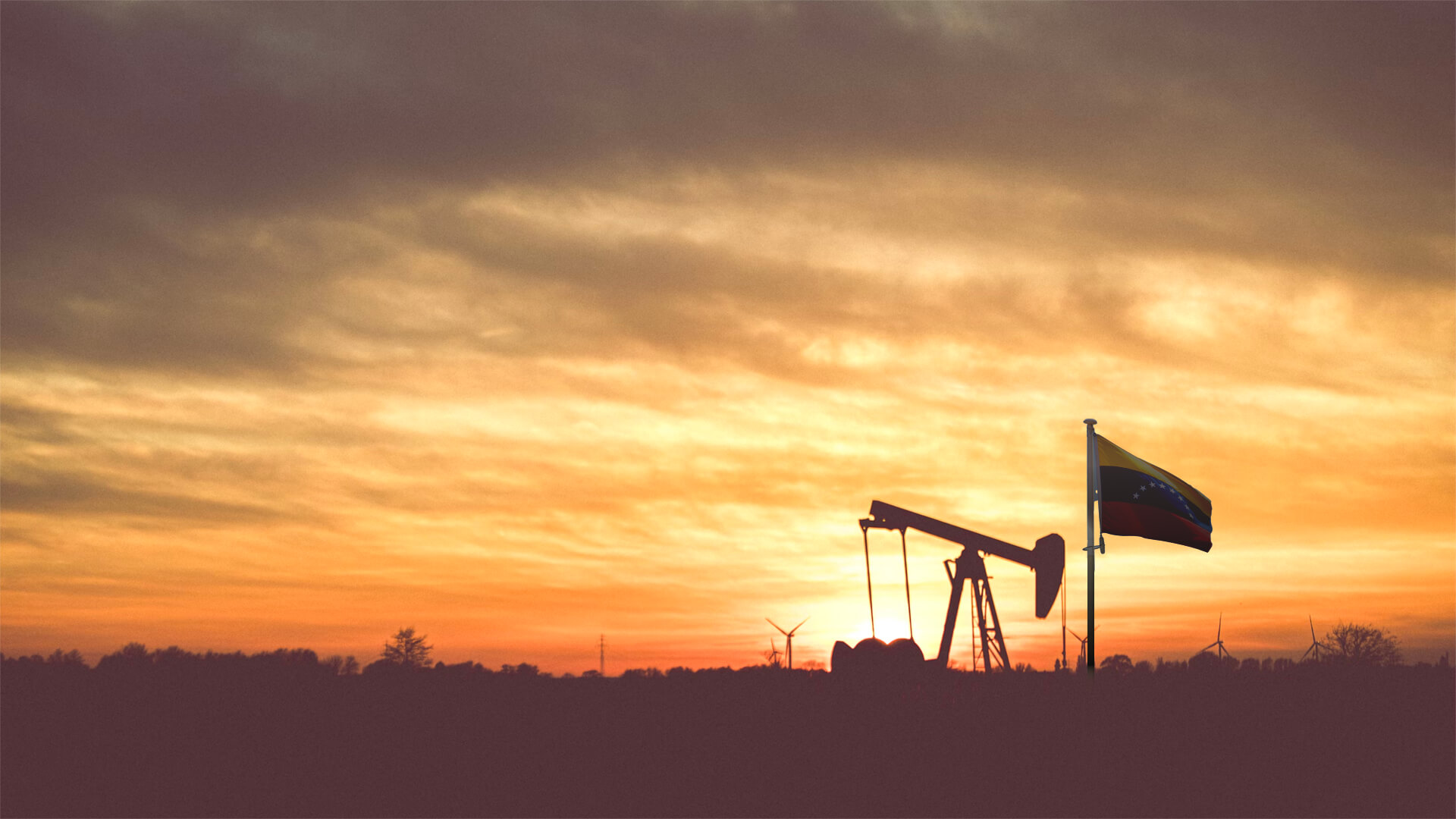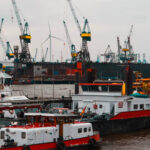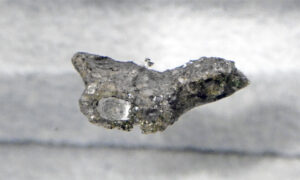The Biden administration has suspended some sanctions on the Venezuelan oil industry thanks to Maduro’s (ever-so) slight easing of political restrictions. While this may pump some air back into the lungs of the oil sector, it will take a lot more to get Venezuela back to significant levels.
The history of Venezuelan crude is about as thick and complex as its dino juice. Back in the day, the US built infrastructure to accommodate the viscous crude coming from the south. Once that crude became unreliable (in more than one way), the US closed the door on those imports.
Now that some sanctions have been lifted, we’ll likely see some more steady flows of Venezuelan crude into the system…but it will take much more foreign investment and reestablishing of trust and reliability to revive the Venezuelan oil sector.
Here at Zeihan On Geopolitics we select a single charity to sponsor. We have two criteria:
First, we look across the world and use our skill sets to identify where the needs are most acute. Second, we look for an institution with preexisting networks for both materials gathering and aid distribution. That way we know every cent of our donation is not simply going directly to where help is needed most, but our donations serve as a force multiplier for a system already in existence. Then we give what we can.
Today, our chosen charity is a group called Medshare, which provides emergency medical services to communities in need, with a very heavy emphasis on locations facing acute crises. Medshare operates right in the thick of it. Until future notice, every cent we earn from every book we sell in every format through every retailer is going to Medshare’s Ukraine fund.
And then there’s you.
Our newsletters and videologues are not only free, they will always be free. We also will never share your contact information with anyone. All we ask is that if you find one of our releases in any way useful, that you make a donation to Medshare. Over one third of Ukraine’s pre-war population has either been forced from their homes, kidnapped and shipped to Russia, or is trying to survive in occupied lands. This is our way to help who we can. Please, join us.
Transcript
Hey everybody. Peter Zeihan here coming to you from Seattle, Washington. It is the 20th of October, although you’re probably not going to see this one for a while because there’s a lot going on. We have a bit of a stack in front of us. Today, the Biden administration in Washington announced the suspension of some of the sanctions that are in place on the Venezuelan oil industry, which will allow a number of companies in the United States to increase their investments legally, as well as a number of refineries in the United States to increase their imports of crude from the country.
Things have been yo-yoing, but in general going down over the course of the last decade. Venezuela today is exporting significantly less than a million barrels a day. In fact, there have been some times where it’s almost dropped to zero, and American imports of that crude have also been dropping proportionately. And in fact, at some point, there have been several months where we didn’t import any at all.
I don’t think it’s ever gotten above a half a million the last two years anyway. It’s not a lot anymore for an economy that uses or processes over 20 million barrels a day. Okay. What’s going on? Okay. Number one, the Venezuelan system is run by a guy by the name of Nicolas Maduro, who is a former bus driver with no executive experience until he took over from Hugo Chavez, who was a kleptomaniac who basically stole the country into the ground.
And so under Chavez and especially under Maduro, the mismanagement has been extreme. And they and their allies have basically stolen everything that wasn’t nailed down, including the lot of stuff that was nailed down. A lot of this stuff was really dumb. So like, you know, you’d have a a power plant, so they’d steal the generators. I mean, it’s like the degree to which we had a kleptocracy here is pretty extreme.
This is not socialism. Let’s be clear. Socialism is where the government plays a directing role in the government. This was just flat out theft, a very different sort of system. We should be afraid of this sort of system. Anyway, what Maduro has done, he’s loosened up some of his restrictions when it comes to political pluralism in the country and basically allowing the opposition to participate in a series of elections.
And the United States, as sanctions are related to those elections. So by basically being a little bit less of a prick, the United States has decided to lessen some of the sanctions. We’ve got three things going on here. First of all, the one that’s closest to home and probably the least significant is the Biden administration’s official mantra is that high gasoline prices in the United States are largely a product of decisions that are made in the various OPEC producing countries rather than his own policies at home.
Which is a little weird because the United States is the world’s largest producer of crude and arguably now the second largest exporter in gross terms. So, I mean, the solution to our gasoline issue is to build up refining capacity in the United States. So we’re not dependent on crudes that come from abroad. Which brings us to the second issue, which is the crude that comes from abroad.
American refiners knew, knew, and they were right back in the seventies and eighties that the global supply of crude, the chemistry of that crude was changing. And we had used up most of the conventional crude that was light and sweet, which is another way of saying that it has very few impurities, whether it’s sulfur and mercury. And that light sweet stuff tends to be very, very easy to refine.
So what we did is we invested hundreds of billions of dollars in retooling our entire industrial base in the refining sector so that we could take heavy, sour crudes which were thick, maybe even solid at room temperature, and may have been like three, even 4% sulfur by weight and process that into finished fuels. The idea is we can use our technical acumen and our better capital position to take the world’s crappiest crudes and refine them into the world’s highest value add products.
And so the margin buy low, sell high. You know how that works has worked very, very well for them over the last 30 years. And Venezuela is one of the sources of the heaviest crude in the world. And there are very, very, very few refineries in the world that can process this stuff except for the United States. And so when Chavez basically led his country on to a anti-American jihad and Maduro moved R0 excuse me, stuck with the ideology, American refiners became less and less interested because the Venezuelans were simultaneously driving their own industry to the ground.
So the crude quality became very erratic and the delivery volumes became erratic, and then delivery reliability became very erratic. So even though they liked the chemistry of the crude, it became too wily for them to depend upon it. So they’ve shifted primarily to other sources. With Canadian oil sands now being the preferred input. This raises the possibility in the midterm that we might be seeing some more Venezuelan crude come in because honestly, there aren’t a lot of other places for it to go.
There are a couple of refineries in India, in China that can take it in limited volumes. But then you have to ship it either around the Americas or through Panama and recombine into a larger tanker on the other side of Panama and send it across the Pacific. It’s literally more than halfway around the world, if you want to do by supertanker, because you have to go all the way around the southern tip of South America and then cross the Pacific the long way in order to get it to a destination.
So the economics of that are questionable at best. And the only reason shipments have gone that direction is because the Venezuelans have taken huge hits. So what usually happens now is Indian or Chinese or Russian traders buy the crude in Venezuela and then ships ship to the north and to the United States and pocket the difference, leaving it to the Venezuelan government to hold the bag.
It’s a delightful little trade that is only possible because of really stupid ideologies, but it happens. Okay. The third the future of the industry. Venezuelan crude is thick, it’s viscous. And some of the stuff in Orinoco, you have to basically inject steam that several hundred degrees into the formation just to make it liquid in the first place. That means it has very high development costs, basically for every barrel of production you’re going to get, you’re going to have to sink 4 to $8000 into the well, giving up one of the world’s higher development costs.
It’s not clear that the foreigners are going to be that interested in investing when you’ve got political issues, you’ve got technical issues, you’ve got infrastructure issues. And that’s even before you consider that the United States could always slap sanctions on again. So a small to moderate increase out of Venezuela, I think makes a certain amount of sense. But I would be really shocked if over the next year that amounts to more than maybe 300,000 barrels a day.
I mean, that’s that’s not nothing. And considering what’s starting to bubble up in the Middle East with Iran, that might be really necessary. But if there is going to be a game changer in the industry, it’s not going to be Venezuela. That makes the difference. Now, I understand there’s a lot of people that thinking it might and because it has in the past, if you remember back to the oil shocks of 73 to 79, it was Venezuela that broke with OPEC and turned open the taps and expanded their production footprint in order to break the Arab oil embargo.
And that had very long lasting implications for the market and for geopolitics. But you had a very different political system in Venezuela at the time. Back then, it was the most advanced of the Latin American countries with a very technical government, with high education standards and pretty good infrastructure. Now, after 25 years of slide, it’s at the bottom of most of those measures, and it just can’t do hardly any of the work itself.
It has to come from abroad. And the Venezuelans are going have to rebuild a degree of trust and reliability before the investment will flow in in the billions. And that is exactly what it would require. Okay. I’m.









